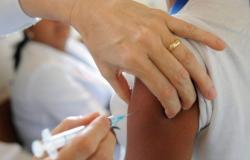Audio (02:18s)
Brazilian agribusiness showed a drop in performance in 2023. According to the Confederation of Agriculture and Livestock of Brazil (CNA) and the Center for Advanced Studies in Applied Economics (Cepea), the Gross Domestic Product (GDP) of agribusiness closed last year with drop of 2.99% compared to 2022. The data shows that the decrease in prices in all segments of the production chain contributed to the result. Lawyer specializing in agrarian law Francisco Torma explains this scenario.
“When I’m talking about agribusiness, I’m not just talking about agricultural production. Therefore, I am talking about GDP that involves everything from machine production, sale of inputs, banking contacts, rural credit financing, all services — the transportation of this product. All of this can influence this result”, he points out.
In the opinion of the executive president of the Brazilian Wheat Industry Association (Abitrigo), Rubens Barbosa, this result was already expected. He cites wheat, as an example.
“Brazil is not a price maker. In the case of wheat, the price is set on the Chicago Stock Exchange and the New York Stock Exchange. So, wheat — even this year — was at a very low price. Despite the crop failure, the domestic price was low, because there was very different wheat abroad,” he reveals.
With this performance, the sector reduced its participation in the country’s total GDP in the period, from 25.2% in 2022 to 23.8% last year. The result was not more unfavorable due to record agricultural harvests and greater production in the primary and agro-industrial livestock segments, which boosted demand for agro-services.
Assessment by activity
When taking into account the analysis for each activity, agricultural GDP fell by 3.26% in 2023, compared to 2022. Only the primary sector achieved a positive result — with an expansion of 5.11%, benefiting from record production and falling of input costs.
The drop in fertilizer prices and lower production of agricultural machinery caused a drop of 27.92%. Furthermore, there was also a decline in industry (3.43%) and in the services sector (3.24%). In livestock farming, GDP fell 2.3% last year. Primary production was the most affected, with a drop of 10.61%. The activity suffered from the drop in prices — mainly for cattle, poultry and milk.
The executive president of Abitrigo, Rubens Barbosa, also reveals that the same scenario was observed in wheat production. “In the case of wheat, there were losses in Rio Grande do Sul, Santa Catarina and Paraná of 30%, 40% of the harvest. And this is having repercussions this year”, he highlights.
Reporting: Lívia Azevedo
Edition: Zildenor Dourado
Zildenor Dourado has a degree in Journalism and Literature/Portuguese from the University of Brasília. He is a specialist in Legislative Communication, from Unilegis, of the Federal Senate. He worked as a reporter and editor for the newspapers Tribuna da Bahia, A Tarde and Jornal de Brasília. in addition to several union press vehicles. He worked as a public servant for the Federal Legislative Chamber, where he was a reporter, editor and head of the Publicity and Press Relations Section.





